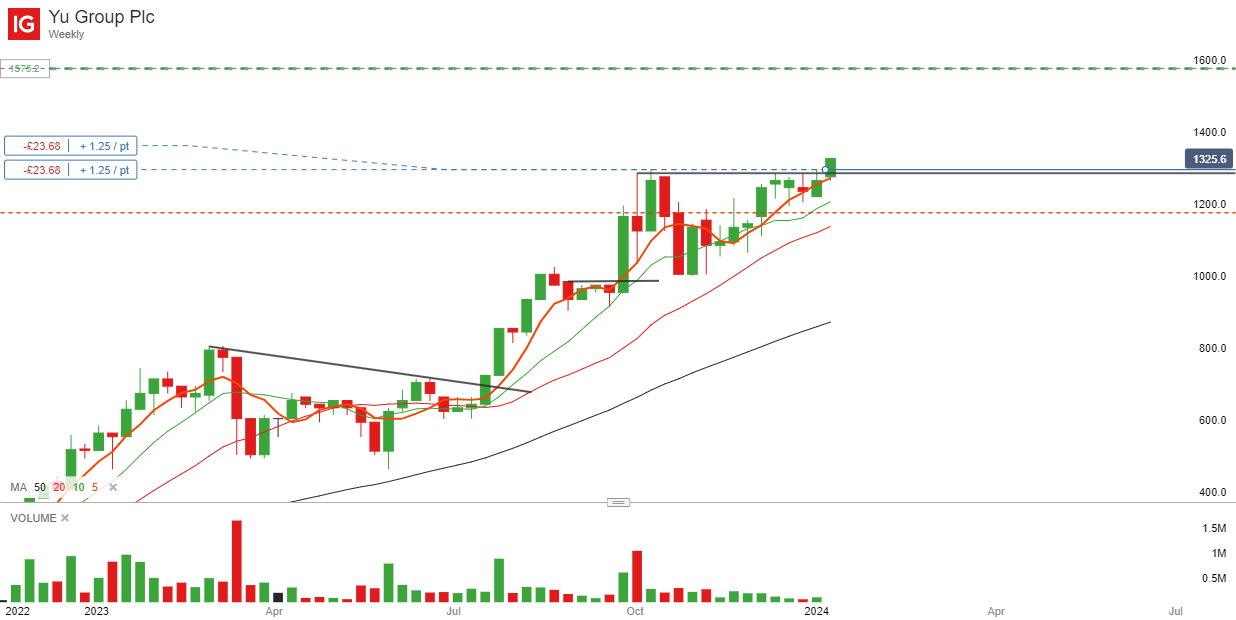Post meant as 'food for thought' and something I wish I'd read 10-years ago as rarely are the effect of spreads discussed!
For an active swing trader like myself, spreads and liquidity matter... a lot. Just because I'm a UK resident, doesn't mean UK listed stocks are best for my style of swing trading. The familiar is not always best!
Take Yu (LON:YU.) group for example. It's one of the strongest stocks in the UK market from a relative strength perspective, has strong growth forecasts, and several impressive fundamental metrics like an ROE of 42.6%.
Moreover, it has the outline of William O'Neil's favourite chart pattern, a Cup with Handle and is nearing a potential 'breakout point'.
On the face of it, all seems well. Until one factors in spreads (and liquidity).
Note the 1hr chart and the difference between the current bid and ask.
The Bid is £12.50 and the Ask is £12.80 (at time of writing).
Investors/traders pay the Ask price when they buy a security and receive the Bid when they sell.
The current spread (difference between the bid/ask) is 2.34%.
A 'round-trip' in spreads is 4.68% that investors/traders are 'giving up' to market makers. Why? Because they pay the spread when they get in and the spread when they get out. Double whammy!
Not to mention stocks with higher spreads are often those where slippage occurs due to a lack of liquidity (willing buyers) when you want to get out at your stop loss level. So you think you're getting out at X but actually you get filled at Y which could be another 2, 3, 4% lower than your intended exit price.
For myself I'm trying to maintain an average loss of circa 3% on losing trades over a large sample size. Spreads this wide make the stock a no go because tight risk management is near impossible.
For illustration purposes of a more liquid UK stock please stroll down to see Tesco (LON:TSCO).
The Bid is £2.966 and Ask is £2.968 (at time of writing). The current spread difference is circa 0.07%.
For an active swing trader not wanting to line market makers pockets, this is much more appealing. However, the UK market unfortunately is a 'small pond' to be fishing in for this type of liquidity - especially if one wants the stock…










